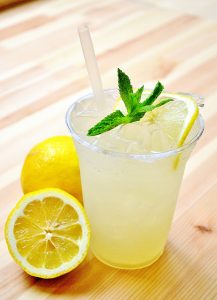Kidney stones are not actual stones, like those you can pick off the ground or skip across water These are called stones, however, because of how they appear and how they feel like when passing through the body. Kidney stones are hard crystal deposits of minerals that are formed inside the kidney. They are usually yellow or brown in color and can be composed of different minerals, depending on the cause of the said stone formation.
Kidney stones form mainly due to a person’s diet and the kidneys efficiency when performing its primary function – which is to clean and filter the bloodstream. As the blood gets screened, several by-products of the body’s digestion get filtered and can turn into clumps. These stones start out as tiny crystals that are to be excreted naturally with urine. However, a person who doesn’t drink much water or take in lesser amounts of liquids than advised may have difficulty in dissolving these tiny clumped crystals which further leads to forming even bigger crystals that might passageways causing a block in the urine passageways or even an infection in the kidney itself.
The different kinds of kidney stones are formed are rooted in its cause. Calcium stones are mainly caused by eating food high in oxalates, Vitamin D, and calcium in itself. Cystine stones are hereditary, which means if any of your parents have it then it could be passed on easily. Struvite stones are common with cases of kidney and urinary infections. Uric acid stones, on the other hand, are a byproduct of high protein diets paired with a lack of liquid in the person’s diet.
Symptoms of kidney stones are similar with other kidney related problems, such as pain in the side, at the back, or even at the lower part of the abdomen, pinkish or reddish color of the urine, cold sweats, chills, pungent urine, fever, and nausea and vomiting.
Upon careful diagnosis and tests, the sizes of the stones may determine whether the patient should undergo an invasive procedure, such as surgery, or a simple modification of diet and lifestyle may be enough to eliminate the kidney stones. To battle smaller sizes of kidney stones and to even avoid kidney stones from forming, here are a couple of diet tips you can use:
Diet to Prevent Kidney Stones
Increasing fluid intake, most especially drinking plain water. It helps make the urine less concentrated and it aids the kidneys in filtering more wastes easily. The recommended daily water intake is at 8 to 10 glasses or roughly more than 3 liters per day.
Cut back on salt. Give the kidneys an easier job by decreasing salt use in cooking, as a condiment, or even through avoiding salty snacks and treats altogether.
Reduce animal protein consumption. To avoid uric acid from building up in the kidneys, lessen the protein that your body needs to break down. Replace proteins with simpler, plant-based proteins such as quinoa, lentils, and beans. Prunes, dried cherries, and apricots are fruits that are rich in protein as well.
Control oxalate-levels by limiting intake of food with high levels of oxalates, such as rhubarb, spinach, sweet potatoes, and nuts. These tend to boost the chances of having oxalates build up in the kidney or within the urinary tract, which will form into a crystal stone over time, if left unmanaged.
Battle kidney stones with citrate. Potassium citrate aids in dissolving kidney stones and allowing the smaller particles to pass through the urine without any problems. Food with high potassium citrate content includes citrus fruits such as oranges, lemons, berries, and pomegranates.
See Also: Renal Diet Menus
